#notre dame paris christmas
Text
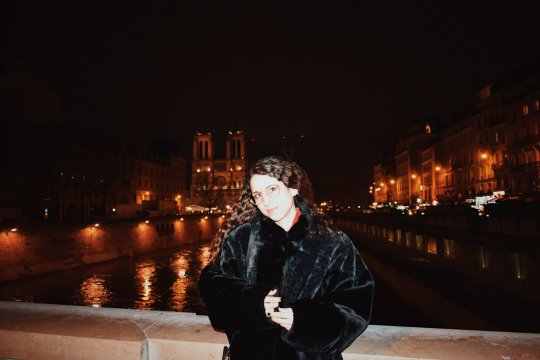
Noël.
#paris#christmas#saint michel#notre dame#me#french#Parisian#parisian girl#winter#Noël#merry christmas
3 notes
·
View notes
Text
#notre dame de paris#notre dame cathedral#paris#bonne_journée_paris#lamour_chemin#bonheur#amoureux#bonmoment#bonsoire#calm#couple#dream#france#lamour chemin#lamourchemin#christmas#christmas tree#sapin de noël#noël
0 notes
Text

As of yesterday, 11 December 2022
This is what Notre-Dame de Paris looks like. Also the Christmas market during thé day ✨ 🤶🏼
It must look much better at night with all the lights on.
0 notes
Text
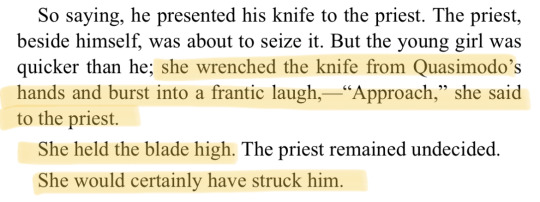

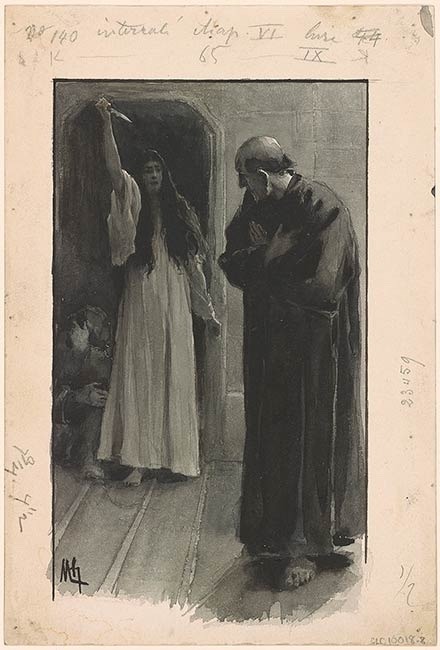
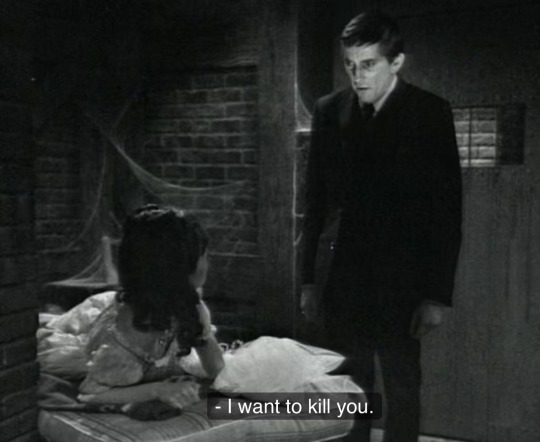
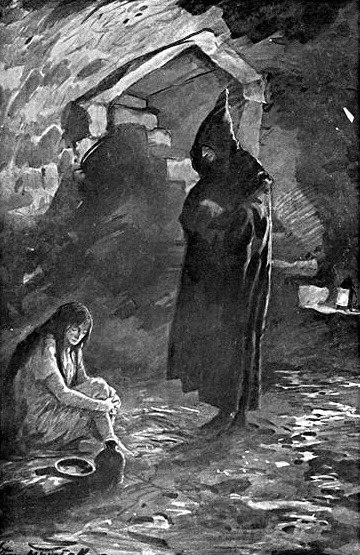
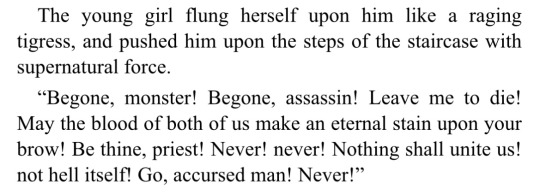


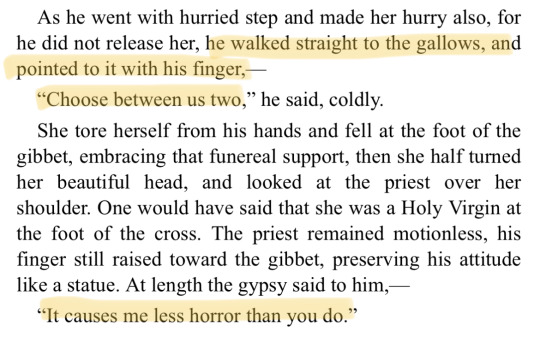
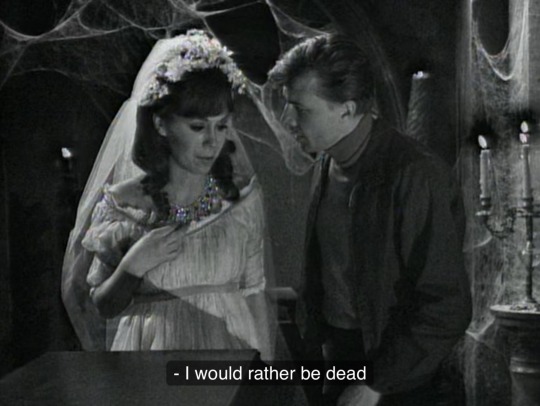





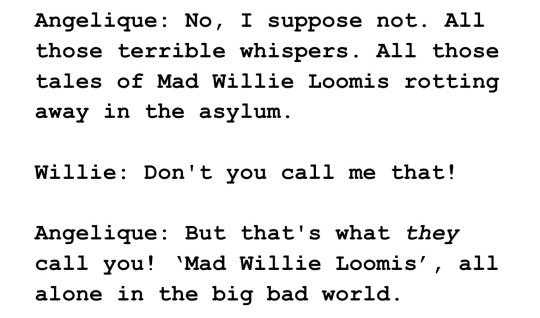
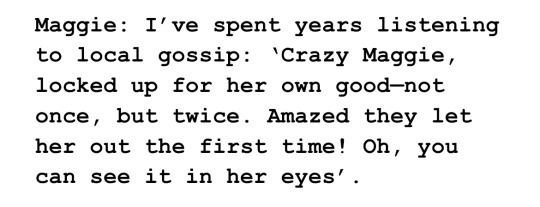
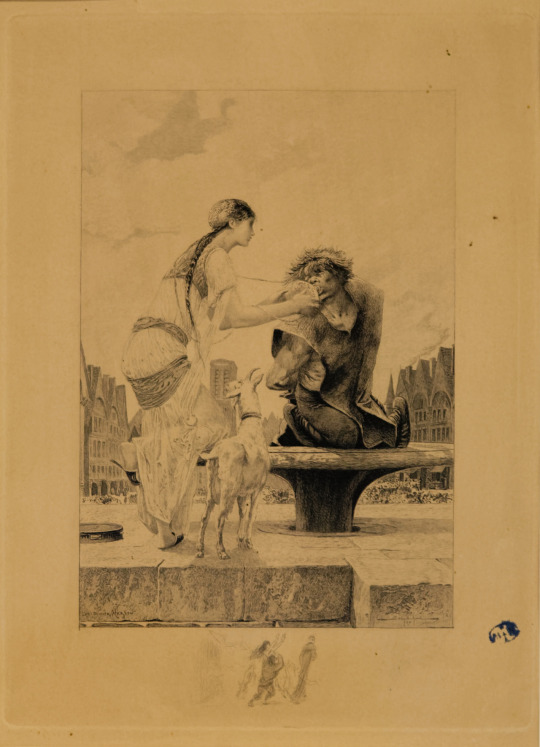



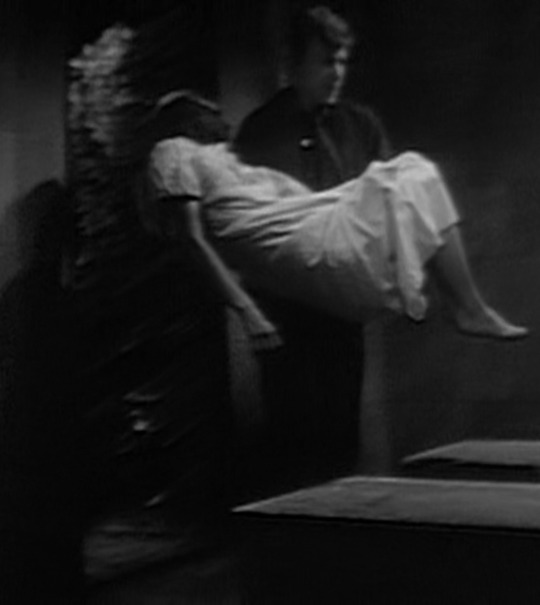

Dark Shadows/The Hunchback of Notre Dame
250 / Notre Dame de Paris, Victor Hugo / Notre Dame Illustration, Felician Freiherr / 251 / Notre Dame Illustration, Russian Edition / Notre Dame Illustration, Charles Shaw / Dark Shadows 'The Christmas Presence' (Big Finish audio) / Dark Shadows 'Beyond the Grave' (Big Finish audio) / 584 / Notre Dame Illustration, Luc Oliver Merson / Dark Shadows 'The Christmas Presence' (Big Finish audio) / Notre Dame Illustration, Luc Oliver Merson
#this was almost So Much Longer#dark shadows#the hunchback of notre dame#notre dame de paris#maggie evans#willie loomis#barnabas collins#dark shadows 1966#big finish#web weaving#mine
18 notes
·
View notes
Text
Tumblr's favorite animated movie!
Here you can find the list of the movies that made it in, but there are some who didn't get enough nominations/the justification given wasn't quite convincing, so we'll start with a classification round for those movies! The winners of each of these polls will make it to the main bracket!
Classification round:
Poll 1: A Cat in Paris, All Dogs Go To Heaven, April and the Extraordinary World, Ballerina, Balto, Barbie as the Princess and the Pauper
Poll 2: Barbie Fairy Secret, Batman Mask of the Phantasm, Digimon Adventure: Last Evolution Kizuna, Dinosaur (2000), Epic (2013), Final Fantasy VII: Advent Children, Jimmy Neutron: Boy Genius
Poll 3: Luca, Martians vs. Mexicans, My Little Pony: The Movie, One Piece Film Red, Pinocchio: A True Story, Robots
Poll 4: The Secret of NIMH, Sleeping Beauty, South Park: Bigger Longer and Uncut, Strange Magic, The breadwinner, The Cat Returns
Poll 5: The Corpse Bride, The End of Evangelion, The Hunchback of Notre-Dame, The Land Before Time, The Last: Naruto the Movie, The Little Mermaid, The Nightmare Before Christmas
Poll 6: The Prince of Tennis: Futari no Samurai, The Rescuers Down Under, The Simpsons Movie, Toy Story 3, Valiant, Wendell & Wild
66 notes
·
View notes
Photo

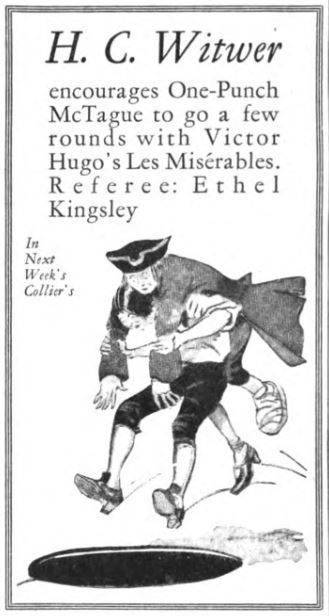
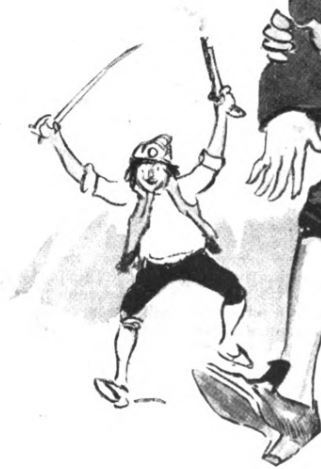
I have a hard time explaining this one . . . it is part of a series called Classics in Slang by H. C. Witwer and in each instalment a boxer named One-Punch McTague reads the classics (like Hamlet and Ivanhoe and Notre-Dame de Paris) and then retells them in “slanguage.” He also fights people with names like Rabit Punch Weird. Apparently Ethel Kingsley is a character teaching him to read and is also his manager (and possible love interest?) ?
My disclaimer is that it was kind of hard to track down this installment, let alone the 8 before it so I am quite confused by the particulars of this saga and because the last name McTague is apparently Irish, I’m wondering if the humor is hinging on prejudice? I can’t tell whose slang is being imitated here. Please weigh in because honestly some snippets of this are funny.
Source: Collier's, 25th December 1926 This instalment on Les Misérables was published on Christmas day (people just love Les Misérables for Christmas)
LES MISERABLES
By Victor Hugo & One-Punch McTague
ONCE upon a time a burly stranger breezed into a little slab in that dear Frawnce, tired, dusty and ragged from a long game of pedestrianship. The facts that he was afoot caused him to be viewed with suspicious looks, as in them days everybody traveled on stilts, except the upper classes, which hadst their own gnus to carry 'em.
Well, ladies and gentlemen, our hero kept on walkin' till he reached the drum where the bishop lived and knocked smartly on the door. In a trice he was inside.
"How are they breakin', Bish?" the new comer says. "I'm Jean Valjean and I been a galley slave for nineteen years come Arbor Day. That shouldst of rated me a job in that movie Ben Hur, but I get the air wherever I go on the account I'm a escaped convict. I'm as homeless as a milk bottle ! Tough, what?"
"I'll say it is!" agrees the bishop, which was nothin' if not big-hearted. "Sit down and knock off some chow, Big Boy; you look in dire straits!"
Whilst showin' the inner man some consideration, Jean told the bishop the reason he'd done the nineteen-year stretch was for stealin' one loaf of bread. The bishop said nothing — just coughed.
Jean couldn't get no shut-eye that night from thinkin' of the high prelate's kindness to him, so to show his gratitude he grabbed all the silverware in the joint and took it on the run. He was no Nurmi [I swear this is a reference to a Finnish runner who won nine Olympic gold medals in the 20s], how the so ever, and was soon brung back by the cops. But to the amazement of all, includin' me and Victor Hugo, the jovial bishop told the John Laws everything was jake, because he'd gave the heirlooms to Jean for him to get a new start in life. As long as the whole silly affair was only in a novel, what did the bishop care?
Jean turned up again in the village of Oo La La and by improvin' on the shape of mustache cups, the chief manufacture of the town, this go-getter soon become a wealthy millionaire. He called him self Father Madeleine and on that account the yokels laughin'ly made him mayor. Everything was hotsy totsy and Jean was sittin' handsome.
But they was one bird which thought the mayor was phoney and that was the chief of police, Javert, whose old man was so stingy he wouldn't give him a first name. Javert hadst been born in jail and spent his life tryin' to make everybody permanent visitors to his birthplace. Hearin' that Father Madeleine hadst adopted a cunnin' little tot entitled Cosette, Javert went to him and says the followin':
"Well, they fin'ly nailed Jean Valjean. He's goin' to jail at Paris next week!"
"So's your aunt Anastasia!" remarks Father Madeleine, unperturbed. "I happen to be Jean Valjean myself!"
"That's what I thought!" grins Javert. "You fell for my plant like the Jasper you are! Will you go to Paris peaceable and take the rap, or shall I call my minions?"
"I love that," says Jean. "I bet you don't even know what a minion is, you big sapolio!"
But, nevers the less, he checked out for Paris that same night and told all to the police, which was so charmed to see him that they sent him to the galleys for life, with the idea of turnin' him in to a master oarsman as a reward for him givin' himself up.
D'ye think all this bothered Jean Valjean? Hades, no! That very same Xmas he come to light again in Sacre Bleu, the French hamlet where he'd put little Cosette to board. He paid her bill and left without stealin' anything, as he was gettin' absent-minded, and they moved into a handsome garret in gay Paree.
Jean never bounded around in the day time as he was duckin' the galley cops, not cravin' to go back to that tiresome rowin' racket no more. But at eve he done all his prowlin' with the other dips which pass in the night, and one gloamin' whilst droppin' a gulden in a beggar's hat he got the thrill which comes once in a lifetime. The beggar was the gumshoe, Javert. More grief!
Scamperin' home, Jean grabbed Cosette and they done a fade-out, with Javert and a battalion of dicks hot on their French heels. They come to a high wall and Jean Valjean hadst to laugh. He'd climbed so many hoosegow walls that this one was a pipe for him. Over he leaps with Cosette in his arms and lands in a convent.
"Nuns the word!" says Jean to the good sisters and stayed there six years as landscape gardener. Javert done nothin' but gnash his teeth all durin' that period.
Jean then went through the motions of changin' his name to Fauchelevent and havin' a yen for the bright lights he again went back to Paris, where Cosette grew up to be a traffic stopper of the first water with more curves than a corkscrew. One of her first acts was to sink to the neck in love with a young youth rejoicin' in the name of Marius, the son of a gil which rejoiced even more in the name of Baron Pontmercy.
Then along comes a passin' revolution and what with bullets and knives flyin' back and forth like sparrows, Paris become another Chicago for a time. Marius was foreman of a street barricade, or a barracuda, as we call 'em, and the first day of the fun he captured Jean's old-time hindrance, Javert, as a spy. The dick was sentenced to be shot at sunrise and was prayin' for a eclipse, when along comes Jean Valjean and asks permission to be allowed the pleasures of bumpin' off this pest personally.
Holdin' his gun in his hand, Jean led Javert behind a bush and there cut the copper's bonds. A boob for the ages, what?
"Beat it!" says Jean. "You're as free as advice for a cold!"
Javert fled a few feet and then turned back with a wild cry.
"I can't be annoyed runnin' you down all my life!" he hollers. "Cook me and be done with it!"
"Who's writin' this book — you or Victor Hugo?" snarls Jean. "Vamp!"
When Jean dashed back to Marius he found that the sheik which hadst won Cosette's heart and hand hadst got himself wounded. The poilus was shootin' everybody right and left, with no regards to lovers and the etc. They was only one chance to escape and that was through a sewer, but Jean Valjean hadst never learned to hesitate. With a maniacal howl he tore off the manhole cover and plunged beneath with Marius on his shoulder!
[from here on out the scan is cut in a way that obscures a letter in the middle of each word down the page so I put in parenthesis words that I’m not sure make sense or can’t see]
The ters raged about him, but he rag right back at 'em and done a [Edeto] the mouth of the river. When come to the surface with Marius, [whoes] he see sittin' on the bank waitin' him but Javert! That simply [poisd] Jean!
By [?] time this funny sleuth was beginni to slightly annoy Jean, so after [?] Marius to a medico he went with Javert to his room. Javert stayed outside thinkin' matters over. Whils the was officer of the law he couldn't leave Jean Valjean escape and on the other hand he couldn't pinch the guy which [had] spared his life. The thing was a [?]-off all around, so Javert run back the river and crowned a life of nonsense by jumpin' overboard and drownin. The big stiff was all damp, anyway.
Marius, wiry youth, got better and wed Cosette, and Jean called 'em both to his side.
“As long as Javert has kissed off, kiddies, there’s no kick left in life for me no more, there bein' nobody to chase me!" he sobs, and so did I when I read this. "That bein' the case, I'm goin' to One side, please!"
And executin' a back somersault, he fell to the floor deceased, and legend hath it he’s dead to this day!
57 notes
·
View notes
Text

Descriptions taken from Wikipedia.
The Nightmare Before Christmas (1993) - Renaissance
A stop-motion animated film, produced and conceived by Tim Burton. 109,440 frames were taken in total. Originally started as a poem Burton wrote while working as an animator for Walt Disney Productions. It was initially released through Touchstone Pictures due to concerns it was "too dark and scary for kids," but has been reissued through Walt Disney Pictures. Catherine O'Hara voices Sally, and Paul Reubens voices Lock. Halloween Town was inspired by German Expressionism and Christmas Town by Dr. Seuss.
The Hunchback of Notre Dame (1996) - Renaissance
Loosely based on the novel, Notre-Dame de Paris by Victor Hugo. Demi Moore voices Esmeralda, and Jason Alexander voices Hugo. (Side note: I'm excited to learn that Kevin Kline voiced Captain Phoebus here, but also Tulio from The Road to El Dorado, and Mr. Fischoeder in Bob's Burgers.) Claude Frollo was inspired by Ralph Fiennes' Amon Goeth in Schindler's List. It is currently the only Disney animated feature to have a major focus on religious faith. Many of the songs were adapted from Latin prayers.
#disney film tourney#disney#polls#round 1#dark ages to renaissance#the nightmare before christmas#the hunchback of notre dame
9 notes
·
View notes
Text
The Annual Ancient Archetypal Ritual of the Winter Solstice~ 21/12
written by astrolocherry
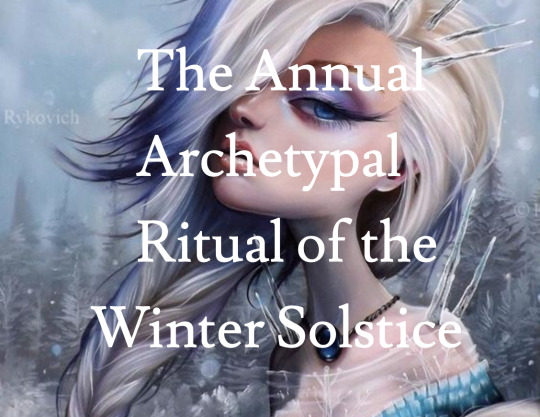
“But the wind blew cold. The Sun Queen looked tired and old. We thought The Sun Queen was dead,” the Faeries answered her. “How can this little baby be the Sun Queen?”..... “That is the great secret of the Winter Solstice.” The Old Wise One touched the baby’s cheek with her wrinkled hand. “Every year the Sun Queen must come to the sacred grove during the darkest days of winter where She dies. I take Her spirit to the Mother who gives Her new life again. This is the way for all creatures, not just the Sun Queen.”
The annual ancient Solstice and Saturnalia festivals live on, exhibited by the celebratory symbols all surrounding and from within us at this time of year. The historic Saturnalia Festival was held in the Winter Solstice and marked the Sun's entrance into Capricorn. To the ancients, this time represented the death of a Sun, and the rebirth of an ‘Unconquerable Sun', as they witnessed the Sun's return from descent and paralysis into zenith and the warmth and life that followed. Darkness and night reconciles with the light of day. We take the good with the bad. Life and death become one. The wisdom of darkness and Saturnian melancholia is respected, revered, and harvested by the light. Our Tibetan mantra for the month of Capricorn goes, “Lost am I in Light Supernal, yet on that Light, I turn my back.” The elder finds the child. The young are given gifts from the old. The gift is the ultimate gift of life - the 'son', the 'sun' of God. You are the newborn Sun/Son.And this is why the Sun is the centrepiece of your horoscope. During this solstice period, one archetype that we embody is Pan as we recite and emulate this dual deity of spiritual light and spiritual darkness, and transition from mortal to immortal.
“The cathedral of Notre Dame in Paris is built upon the ancient site of a Temple of Isis, and that the early Church very frequently availed itself of a so-called heathen opportunity to determine a Christian rite or a day of sacred remembrance. Even the establishing of Christmas Day on December 25th was so determined. Annie Besant tells us that: "He is always born at the winter solstice, after the shortest day in the year, at the midnight of the 24th December when the sign Virgo is rising above the horizon; born as this Sign is rising, he is born always of a Virgin, and she remains a Virgin after she has given birth to her Sun-child as the celestial Virgo remains unchanged and unsullied when the Sun comes forth from her in the Heavens. Weak, feeble as an infant is he, born when the days are shortest and the nights are longest...."
Another element of this ritual is part of this begins on Christmas Eve when we celebrate the second re-birth of Dionysus. This is a 12 day event where we make offerings, sing hymn's, and rejoice with intoxication, fruit, consume wine instead of water, and relish in a banquet. Dionysus is known as the spirit of the Christmas present who was recipient of 7 toys known as the toys of Dionysus. He is often depicted riding a chariot pulled by exotic beasts that transform into the sleigh and the reindeer. The ‘3 wise men’ followed a ‘star’ or ‘horoscope’ to find the child saviour. This is the ‘way’ in which your astrological chart can direct you through to your ultimate potential, so it may be a reaffirming gift to read and reflect on your own. Happy solstice, Love Cherry
art by Kurtis Rykovich
#winter solstice#solstice#capricorn season#mythology#christmas#ritual#ancient ritual#magic#dionysus#pan
29 notes
·
View notes
Text
Stained Glass Heart - Part 2
"Someone's going to die here tonight, and its you!" Superior spoke, pulling Peters head back by those soft curls, yanking his head so those brown eyes were forced to look at the gargoyles on that roof, who seemed to wait for the show to begin..
Hey all! This is my follow up to Part one of 'Stained Glass heart' which is here, it basically spawned as a battle between Peter and Sim!Tony in Notre Dame cathedral, Paris! (This basically took me over a year to decide to finish this!)
"Shhh, don't you cry, Mr Parker, Its me, i'm here..sorry I left you for so long..I've been searching all universes for you, and I've finally found you, this city, has led me to you." Superior spoke, looking at Peter, tilting his chin up, those brown doe eyes were priceless. Pricelessly naive, Superior could make Peter fall for him,do as he wished, do anything.
Peter sniffled, wiping his eyes. He could see the oldTony in that armor, such silver armour that reflected the colours of the stained glass windows all around them, twinkling like the colours of a christmas tree in a warm home, on a cold night. Even with those blue eyes, it didn't take long for Peter to lean into the hand on his cheek, and it took seconds, but Peter was a goner from the start. Peter had been nervous, but just the stillness of the cathedral, the twinkling of the candles, was enough to put him at ease. A sanctuary, like how he'd found sanctuary in Tony's chest, so long ago. A place of peace, solitude, safety.
"It is beautiful in here, I was so scared I'd never see you again.." Peter whimpered, knowing he'd probably said that dozens of times in his babbling, emotional mess. "T-The tower! I saw..wait! That was you, wasn't it? you crashed into it when you got here, r-right?" Peter remembered, unsure if he sounded shaky or excited.
Superior only nodded slowly, the hand on Peter's wrist began to tighten its grip on him, and the mere motion caused Peter to wince and try to pull away.
"W-what are you...urgh, Tony!" Peter whimpered, looking up at Superior again, something in him then shifted.
"Isn't this place just stunning? Its the perfect place..." Superior spoke, causing Peter to raise a brow in curiosity.
"Why..for...for what?" He babbled again.
"For me to kill you..." Superior spoke, and Peter felt his blood run cold...
#starker#ironspider#marvel#peter parker#tony stark x peter parker#marvel mcu#roleplaying#Sim!tony#sim!IronMan#superior iron man#notre dame#Paris#fanfics#light angst
9 notes
·
View notes
Note
4, 7, 11 ~
Answered 4!
7 - Tell us about the plot of the first fanfic you ever wrote
The first fic I ever wrote fragments of would have been when I was pretty small, but I never got far with any of those ideas; the first fic I ever wrote and posted I will be a bit vague about so that no one can track down the original, but still had elements that are probably unsurprising to folks who know me -- lots of history research, for one, and the whole thing was a inspired by Dickens' A Christmas Carol.
I do enjoy that even the old, embarrassing ff.net fic I wrote as a 16 year-old has some things in common with the sorts of things I'm writing today, and I'd like to think younger me would be thrilled to know how far I've come as a writer since then (a whole decade ago!)
11 - What’s something neat you’ve learned while doing research for something you were writing? Also, how much do you worry about doing research in general?
Oh god how can I restrict myself to one thing.
I guess for the sake of choosing a few
Found a really excellent SCA recipe website while looking up 1500s German foods for my Pentiment exchange fic
Was researching the Notre Dame de Paris fire as a result of writing a scene in a Pentiment fic during the Act II fire in the abbey and did you know that because old Gothic cathedrals and churches were constructed with a ton of lead, after the fire the lead levels in the air in the immediate vicinity of the cathedral spiked VERY BADLY
This came up while I was doing research for the trans Caleb fic, but cardinals were not officially named as such until well after the Wittebanes ended up in the Demon Realm, so Caleb wouldn't even have called Flapjack a cardinal, he probably just would have referred to him as a "redbird"
Also the last part of this one feels redundant because you all know me but. I do so much research all the time. I will research every throwaway line. I will research information that doesn't even make it into the fic in an effort to get the vibes right. I will refuse to reference a street name until I have looked at actual maps of Victorian London or Renaissance Nuremberg. I will calculate actual travel times based on Tolkien's maps of Middle Earth. I will read 200 year-old medical journals for whump fic. I will spend hours on Wikipedia only to then spend more hours on JSTOR and/or other databases corroborating what I think I have learned.
(Part of this is admittedly because it's one of the things that's genuinely fun about writing for me. I've also successfully taught myself how to be a better history researcher especially by obsessing over details in fic, so it does have perks!)
14 notes
·
View notes
Text
Daylight savings time means....we actually made mass in our Cathedral yesterday!

(photo credit to Antoine. His camera is better than mine. I keep forgetting how often you people get new phones. I cannot keep up. I like to keep things.)
This was my cathedral for as long as I lived in New Orleans. It is the oldest Cathedral in the New World. It hasn't always looked this way, of course. It's final incarnation came about towards the end of our time here, but still. It's the cathedral I dragged my family to whenever there were evening masses, which was not so frequent back then as it is now. I remember when the bell tower and clock were added. Claudia was just a child then, and I used to take her in late at night to feel the bell vibrate through the whole building.

I remember when they brought an Italian man in to paint the frescoes. The garish electric lights, I'm told were added in the 20s and changed to those horrible blinding blue eco friendly lights rather recently. Still. It's beautiful. It felt good to be inside again. I haven't been able to get in, since apparently houses of worship lock their doors at night now. Not very inclusive of them.
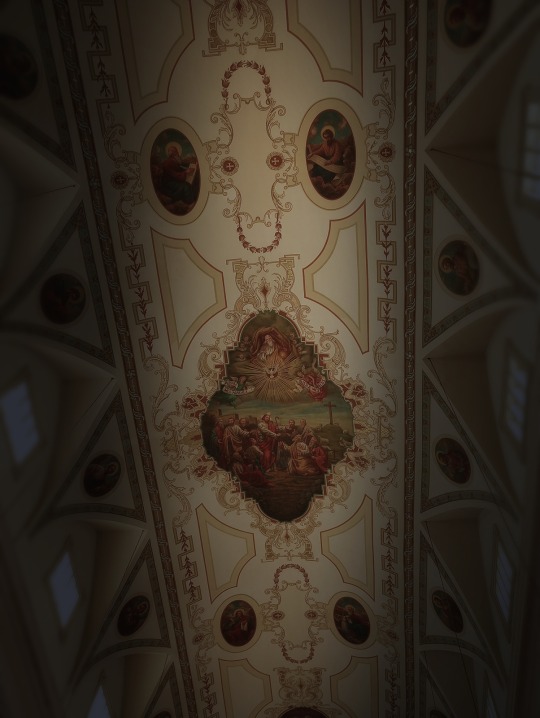

(in related Catholic news, are we all celebrating Pope Francis saying trans people must be given sacraments? I actually got Gabrielle into a cathedral for the first time in a few centuries because of that!)
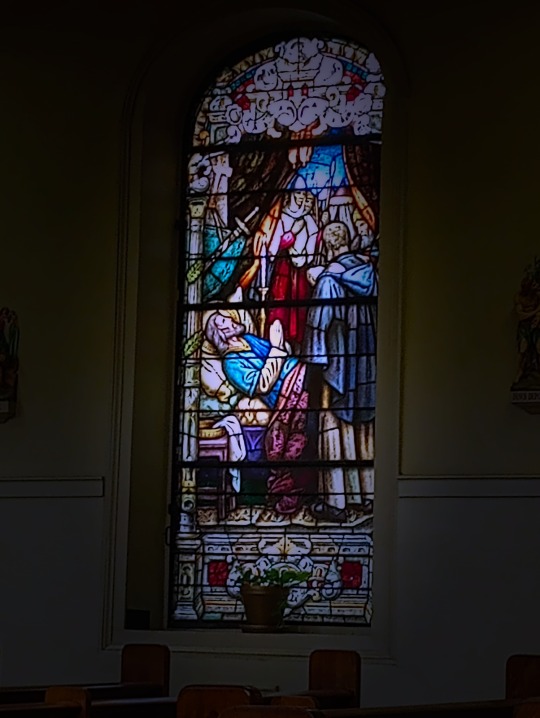
This was Claudia's favorite stained glass. It's towards the back, on our side of the cathedral, near where our family used to sit at Christmas Mass and Easter Vigil. She liked the man dying on it. The first time she saw it she was still a five year old and asked my why the man was dying. I told her the actual story of the saint in a whisper and she listened, wide eyed, still an actual child, and then promptly shook her head and said "No, daddy. He's dying 'cause...." She paused and giggled, then shouted. "I ATE HIM!"
The whole congregation turned and stared. However it was hardly the first time a child had shouted in the middle of mass and it would NOT be the last. I think of it every time I see that pane.
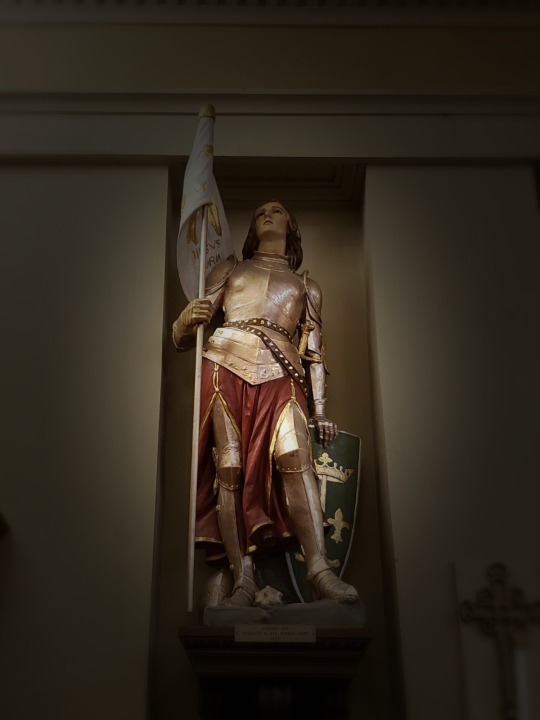
This is the not the Joan of Arc that was there at the time. The one that was there was a copy of a joan of Arc that stood at the Notre Dame cathedral in Paris, and she stood outside the chapel, where Lestat would often have to take Claudia out and let her walk around when she was genuinely young if she got too fussy during mass. He would tell her about Notre Dame in Paris, and about Joan of Arc, and she quite took to the story, as many little Catholic girls with slightly violent tendencies do. When we did finally get to Paris and saw the Notre Dame, Claudia rushed inside to find the statue Lestat had told her about, only to find the one they were familiar with had been recently replaced. She cried for her dead father there.
Lestat also shed a tear at this replacement, thinking of her.
#the vampire chronicles#louis de pointe du lac#the vampire lestat#lestat de lioncourt#interveiw with the vampire#louis pointe du lac#loustat#anne rice vampires#the vampire claudia
6 notes
·
View notes
Text
Last time on Final Fantasy XIV, someone put a child in charge of the military and just like name a fucking Mission Impossible, some rich asshole screws it up but gets killed in the process. Now its up to Barbie Island Adventure, the Warrior of Blight, and the child fuck up that is Alfrado to travel to Definitely Not Paris and save it from the clutches of another fucking Pope. But first we have to find the Antipope Joanne and convince her to take us to parley with Dragon Satan to save Notre Dame from Also Dragon Satan along the way we’ll fight a Jo Jo stand, those bug things from Mimic, the wife of Dragon Satan, the urge to not strangle the fuck out of a Moogle, the urge to stop the unwashed spikey man from being prejudice torwards the Anti-Pope, and B A G P I P E S! But not before the Arch Angel Michael hurls a spear through our bottom bitches’ tit and ruins our entire happy future. Setting in motion a story where we have to fight Rocky from the Horror Picture show by way of Dio if Dio was even more taller, had DDDs and wore a katana golf bag and enjoyed being fisted at the end of time and space. But that is a story for another time, because the Pope turned out to actually be a bad idea combined religious hypocracy refusing to give up power forces him to confuse the eye of Dragon Satan in order to become the reanimated corpse of mecha Margaret Thatcher and her back up dancers from the pits of The Garden of Earthly Delights. As well as Tweedledee and Tweedleimportantotheplotbeunderutilized who fusion together to make the Ghost of Christmas Future. And to make matters worst because the spikey boy didn’t shower he is possessed by the soul of Dragon Satan who vows to get revenge on Paris but not before fleeing instead of just killing us outright because by the laws of MMORPGs all villains must give us enough time to get our shit together and kick their face in. Unless you’re a cat boy then prepare to be SHOT by Pepe Lepew. Don’t worry though after escaping a Metriod countdown, we return to Paris and who tell us not to worry about the stinky boy or dragon satan or even Scrooge McDuck on the Moon with our Doppleganger and kick back and relax its not like a tragedy so massive is going to happen that it’ll be like a Storm of Blood now shut up, take this coat and date this handsome elf. Goodbye.
5 notes
·
View notes
Note
Re: movie/tv/music/book recommendations, what is your favorite movie/tv/music/book that you love specifically because it makes you feel bad (whatever that means to you)?
OH BOY
Honestly, I could put a wide array of extreme horror stuff on here, but for now, I'll limit it to Martyrs because of the sheer devastating impact it had on me on first viewing, and give a shoutout (though not a very loud one, because its politics aren't great) to Eden Lake for staying with me the way it did. I hate, hate, hate, hate to give any props to Lars Von Trier because he's a creep, but I did get a lot out of Dancer In the Dark and The House that Jack Built for the same reason, and 2016's Inside was my 2021 Christmas movie. I'll also mention that I watched Uncut Gems a week into 2020 lockdown, suffered extreme anxiety watching it (like, hyperventilation level), and have since proceeded to watch it about three or four more times, but that's me. There isn't a lot of music that makes me feel bad that's enjoyable for it, I don't think, except maybe Nine Inch Nails' The Downward Spiral, although even that has sweetened over time knowing how far Trent Reznor has come in his life and recovery from the place he was in when it was first penned. Oh! And Baby Birch by Johanna Newsom left me wheezing hollowly the first time I listened, but it is a gorgeous song that I have returned to -- and been subsequently hollowed-out again and again by -- many more times. (Jackrabbits has a lesser, but similar effect.)
For books that make you feel bad in the good way, Chuck Palahniuk's your guy! I feel queasy even thinking about Haunted. Likewise, pick a Shirley Jackson short story. Any of them. All of them. (This one was harder because a lot of books that leave me feeling bad or gross are ones I tend to dislike, lolol.) The novel ending of Notre Dame de Paris also broke me as a teen in the best ways...the skeletons crumbling get me every time!
What a wonderful question -- thanks so much for sending it!
2 notes
·
View notes
Text
Best English Poets of All Time- English Literature
Best English Poets of All Time- English Literature
The Best English Poets of All Time in english literature. people just know the poet death & birth and literary works.
William Shakespeare (1564 – 1616) English poet and playwright. Famous plays include Macbeth, Romeo and Juliet, Merchant of Venice and Hamlet. Shakespeare is widely considered the seminal writer of the English language.
Jonathan Swift (1667 – 1745) Anglo-Irish writer born in Dublin. Swift was a prominent satirist, essayist and author. Notable works include Gulliver’s Travels (1726), A Modest Proposal and A Tale of a Tub.
Samuel Johnson (1709 – 1784) Britishauthor best known for his compilation of the English dictionary. Although not the first attempt at a dictionary, it was widely considered to be the most comprehensive – setting the standard for later dictionaries.
Johann Wolfgang von Goethe (1749 – 1832) German poet, playwright, and author. Notable works of Goethe include: Faust, Wilhelm Meister’s Apprenticeship and Elective Affinities.
Jane Austen (1775 – 1817) English author who wrote romantic fiction combined with social realism. Her novels include: Sense and Sensibility (1811), Pride and Prejudice (1813) and Emma (1816).
Honore de Balzac (1799 – 1850) French novelist and short story writer. Balzac was an influential realist writer who created characters of moral ambiguity – often based on his own real life examples. His greatest work was the collection of short stories La Comédie humaine.
Alexandre Dumas (1802 – 1870) French author of historical dramas, including – The Count of Monte Cristo (1844), and The Three Musketeers (1844). Also prolific author of magazine articles, pamphlets and travel books.
Victor Hugo (1802 – 1885) French author and poet. Hugo’s novels include Les Misérables, (1862) and Notre-Dame de Paris (1831).
Charles Dickens (1812 – 1870) – English writer and social critic. His best-known works include novels such as Oliver Twist, David Copperfield and A Christmas Carol.
Charlotte Bronte (1816 – 1855) English novelist and poet, from Haworth. Her best known novel is ‘Jane Eyre’ (1847).
Henry David Thoreau (1817 – 1862) – American poet, writer and leading member of the Transcendentalist movement. Thoreau’s “Walden” (1854) was a unique account of living close to nature.
Emily Bronte (1818 – 1848) English novelist. Emily Bronte is best known for her novel Wuthering Heights (1847), and her poetry.
George Eliot (1819 – 1880) Pen name of Mary Ann Evans. Wrote novels, The Mill on the Floss (1860), Silas Marner (1861), Middlemarch (1871–72), and Daniel Deronda (1876)
Leo Tolstoy (1828 – 1910) Russian novelist and moral philosopher. Famous works include the epic novels – War and Peace (1869) and Anna Karenina (1877). Tolstoy also became an influential philosopher with his brand of Christian pacificism.
Fyodor Dostoevsky (1821-1881) Russian novelist, journalist and philosopher. Notable works include Notes from Underground, Crime and Punishment and The Idiot
Lewis Carroll (1832-1898) Oxford mathematician and author. Famous for Alice in Wonderland, Through the Looking Glass, and poems like The Snark.
Mark Twain (1835 – 1910) American writer and humorist, considered the ‘father of American literature’. Famous works include The Adventures of Tom Sawyer (1876) and Adventures of Huckleberry Finn (1885).
Thomas Hardy (1840-1928) English novelist and poet. Hardy was a Victorian realist who was influenced by Romanticism. He wrote about problems of Victorian society – in particular, declining rural life. Notable works include: Far from the Madding Crowd (1874), Tess of the d’Urbervilles (1891), andJude the Obscure (1895).
Oscar Wilde (1854 – 1900) – Irish writer and poet. Wilde wrote humorous, satirical plays, such as ‘The Importance of Being Earnest‘ and ‘The Picture of Dorian Grey’.
Kenneth Graham (1859 – 1932) Author of the Wind in the Willows (1908), a classic of children’s literature.
George Bernard Shaw (1856 – 1950) Irish playwright and wit. Famous works include: Pygmalion (1912), Man and Superman (1903) and Back to Methuselah (1921)
Sir Arthur Conan Doyle (1859 – 1930) British author of historical novels and plays. Most famous for his short stories about the detective – Sherlock Holmes, such as The Hound of the Baskervilles (1902) and Sign of Four (1890).
Beatrix Potter (1866 – 1943) English conservationist and author of imaginative children’s books, such as the Tales of Peter Rabbit (1902).
Marcel Proust (1871 – 1922) French author. Best known for epic novel l À la recherche du temps perdu (In Search of Lost Time) published in seven parts between 1913 and 1927.
William Somerset Maugham 1874 – 1965) British novelist and writer. One of the most popular authors of 1930s. Notable works included The Moon and Sixpence (1916), The Razor’s Edge (1944), and Of Human Bondage (1915)
P.G.Wodehouse (1881 – 1975) English comic writer. Best known for his humorous and satirical stories about the English upper classes, such as Jeeves and Wooster and Blandings Castle.
Virginia Woolf (1882 – 1941) English modernist writer, a member of the Bloomsbury group. Famous novels include Mrs Dalloway (1925), To the Lighthouse (1927) and Orlando (1928).
James Joyce (1882 – 1941) Irish writer from Dublin. Joyce was one of most influential modernist avant-garde writers of the Twentieth Century. His novel Ulysses (1922), was ground-breaking for its stream of consciousness style. Other works include Dubliners (1914) and Finnegans Wake (1939).
D H Lawrence (1885 – 1930) English poet, novelist and writer. Best known works include Sons and Lovers, The Rainbow, Women in Love and Lady Chatterley’s Lover (1928) – which was banned for many years.
Agatha Christie (1890 – 1976) British fictional crime writer. Many of her books focused on series featuring her detectives ‘Poirot’ and Mrs Marple.
J.R.R. Tolkien (1892 – 1973) – Professor of Anglo-Saxon and English at Oxford University. Tolkien wrote the best-selling mythical trilogy The Lord of the Rings. Other works include, The Hobbit and The Silmarillion, and a translation of Beowulf.
Vera Brittain (1893 – 1970) British writer best known for her autobiography – Testament of Youth (1933) – sharing her traumatic experiences of the First World War.
F. Scott Fitzgerald (1896 – 1940) American author. Iconic writer of the ‘jazz age’. Notable works include The Great Gatsby (1925), and Tender Is the Night (1934) – cautionary tales about the ‘Jazz decade’ and the American Dream based on pleasure and materialism.
Enid Blyton (1897 – 1968) British children’s writer, known for her series of children’s books – The Famous Five and The Secret Seven. Blyton wrote an estimated 800 books over 40 years.
C.S. Lewis (1898 – 1963) Irish / English author and professor at Oxford University. Lewis is best known for The Chronicles of Narnia, a children’s fantasy series. Also well known as a Christian apologist.
Ernest Hemingway (1899 – 1961) Ground breaking modernist American writer. Famous works included For Whom The Bell Tolls (1940) and A Farewell to Arms (1929).
Vladimir Nabokov (1899 – 1977) Russian author of Lolita (1955) and Pale Fire (1962)
Barbara Cartland (1901 – 2000) One of most prolific and best selling authors of the romantic fiction genre. Some suggest she has sold over 2 billion copies worldwide.
John Steinbeck (1902 – 1968) American writer who captured the social change experienced in the US around the time of the Great Depression. Famous works include – Of Mice and Men (1937), The Grapes of Wrath (1939) and East of Eden (1952).
George Orwell (1903 – 1950) – English author. Famous works include Animal Farm, and 1984. – Both stark warnings about the dangers of totalitarian states, Orwell was also a democratic socialist who fought in the Spanish Civil War, documenting his experiences in “Homage to Catalonia” (1938).
Samuel Beckett (1906-1989) Irish avant garde, modernist writer. Beckett wrote minimalist and thought provoking plays, such as ‘Waiting for Godot’ (1953) and ‘Endgame‘ (1957). He was awarded the Nobel Prize in Literature in 1969.
Albert Camus (1913 – 1960) – French author, journalist, and philosopher. Associated with existentialism and absurdism. Famous works included The Myth of Sisyphus, The Stranger and The Plague.
Roald Dahl (1916 – 1990) English author, best known for his children’s books, such as Willy Wonka and the Chocolate Factory, James and The Giant Peach and The BFG.
Aleksandr Solzhenitsyn (1918 – 2008) Russian author, historian and political critic. Solzhenitsyn was awarded the Nobel Prize for Literature in 1970 for his work in exposing the nature of Soviet totalitarianism. e.g, The Gulag Archipelago (1965-67).
J.D. Salinger (1919 – 2010) American author. Most influential novel The Catcher in the Rye (1951). Wrote many short stories for New Yorker magazine, such as “A Perfect Day for Bananafish”
Joseph Heller (1923 – 1999) American novelist, who wrote satirical and black comedy. His most famous work is ‘Catch 22’ (1961) – a satire on the futility of war.
Gabriel Garcia Marquez (1927 – 2014) Colombian author. Wrote: One Hundred Years of Solitude (1967), The Autumn of the Patriarch (1975) and Love in the Time of Cholera (1985). Nobel Prize in Literature (1982).
Anne Frank (1929 – 1945) Dutch-Jewish diarist. Known for her diary ‘Anne Frank‘ Published posthumously by her father – recalling her life hiding from Gestapo in occupied Holland.
Salman Rushdie (1947 – ) Anglo-Indian author. His works combine elements of magic realism, satire and historical fiction – often based on Indian sub-continent. Notable works include Midnight’s Children (1981), Shame (1983) and Satanic Verses (1988).
Stephen King (1947 – ) American author of contemporary horror, supernatural fiction, suspense, science fiction, and fantasy. One of the best selling authors of modern times.
George R.R Martin (1948 – ) American author of epic fantasy series – A Song of Ice and Fire, – his international best-selling series of fantasy, adapted for the screen as a Game of Thrones.
Douglas Adams (1952 – 2001) British writer of humorous and absure science fiction. Adams wrote a best selling trilogy (of five books) The Hitchhiker’s Guide to the Galaxy – which began as a BBC play.
J.K.Rowling (1965 – ) British author of the Harry Potter Series – which has become the best selling book series of all time. Her first book was Harry Potter and thePhilosopher’s Stone (1997). Rowling has also published adult fiction, such as The Casual Vacancy (2012) and The Cuckoo’s Calling (2013)
Khaled Hosseini (1965 – ) Afghan born American writer. Notable works include: The Kite Runner (2003) A Thousand Splendid Suns (2007) And the Mountains Echoed (2013)
Homer (c. 8th Century B.C. ) Considered the greatest of the ancient Greek poets. Homer was the author of the two epic poems, The Iliad and The Odyssey.
Sappho ( c 570 BC) One of the first published female writers. Much of her poetry has been lost but her immense reputation has remained. Plato referred to Sappho as one of the great ten poets.
Virgil (70 BC – 19 BC) Roman poet. Wrote three epics Eclogues (or Bucolics), the Georgics, and the Aeneid.
Dante Alighieri (1265–1321) Italian poet of the Middle Ages. His Divine Comedy, is one of most influential European works of literature. Dante is also called the “Father of the Italian language”.
Geoffrey Chaucer (1343 – 1400) Considered the Father of English Literature. Best known for Canterbury Tales (1475).
John Milton (1608 – 1674) English poet. Best known for his epic poem Paradise Lost (1667), written in blank verse – telling the Biblical story of man’s fall. Also wrote Areopagitica (1644) in defence of free speech.
William Blake (1757 –1827) English mystic and romantic poet, wrote Songs of Innocence and Songs of Experience. Also hand-painted many of his works.
William Wordsworth (1770 – 1850) English romantic poet from Lake District, many poems related to natures, such as his Lyrical Ballads.
Samuel Taylor Coleridge (1772 – 1834) English romantic poet. Author of The Rime of the Ancient Mariner and Kublai Khan.
Percy Bysshe Shelley (1792 – 1822) English romantic poet. Famous works include Queen Mab and Prometheus Unbound
John Keats (1795 – 1821) English Romantic Poet, best known for his Odes, such as Ode to a Nightingale, Endymion.
Ralph Waldo Emerson (1803 – 1882) American Transcendentalist poet and writer.
Alfred Tennyson (1809 – 1892) Popular Victorian poet, wrote Charge of the Light Brigade, Ulysses, and In Memoriam A.H.H.
Walt Whitman (1819 – 1892) American poet. Wrote Leaves of Grass, a ground breaking new style of poetry.
Emily Dickinson (1830 – 1886) American female poet. Led secluded lifestyle, and left legacy of many short vivid poems, often on themes of death and immortality.
Rabindranath Tagore (1861 – 1941) Indian poet. Awarded Nobel Prize for Literature for his work – Gitanjali.
Robert Frost (1874 – 1963) – Influential American poet, one of most highly regarded of the Twentieth Century. Most famous work ‘The Road Not Taken’ (1916)
Maya Angelou (1928 – 2014 ) – Modern American poet and writer.
Source: Internet
3 notes
·
View notes
Text
youtube
The feast of the fools, also called the feast of the ass, was destined to honor the donkey that carried Jesus during his entry into Jerusalem. In these holidays, celebrated after Christmas, the altar boys and priests reversed their roles while conducting the rites. The practice was particularly widespread in Notre Dame in Paris and in many European churches; in Italy similar cases are witnessed as in a famous missal of 1200 from the cathedral of Padua. The basic scheme of this particular event was always the same: during vespers, when the verse in which God overthrows the powerful from their thrones and raises the humble was read, a great din exploded from the choir, obviously prepared. The minor orders and the altar boys then chased the priests from their chairs and took their place, while a young cleric flanked the bishop during the rest of the rite assuming the role of pope of fools, bishop of fools or abbot of fools. At the end of the service he received the same honors as the real prelate, and his chaplain was to pronounce a blessing that comprehend: liver disease, a banquet of forgiveness, twenty banquets of toothache and two ringworms under the chin.Young people caught in bed on the day of the Innocents (December 28) received slaps on the back. In various cities the canons, clergymen and sometimes seculars were caught in their bed in the morning and, in a state of complete nakedness, led through the streets, into churches and onto the altar where they were mocked. Even the clergymen actively participated with jokes during the day of the Innocents walking naked through the city or exhibiting men, naked, in the theaters. Biblical scenes were represented in these periods of the year and with the passage of time these theatrical performances reached a point where some saints were even attributed a fixed characteristic; St. Peter was the most funny, St. Thomas was the incredulous and so on. The years passed and the holidays became more and more extreme and profane. Although their initial peaceful acceptance was testified by their inclusion in liturgical missals, in the following centuries these feasts and theatrical performances were limited and in 31 December 1519 the feast was gradually banned by the religious and civil authorities.
#music#medieval#medieval music#insane discordant harmonies that culminate around 27min in a rythm meant to sound like the braying of an ass#also there was a bit more in the description#but the guy writing it started to sound like he was becoming the Joker#Youtube#holiday
2 notes
·
View notes
Text
Brackets under the cut~
Update (6/16 4:33am): Please check the update for the Golden to Bronze section!
Update (6/22): Adding poll results when I can 🥀🏰

Google docs link for another view

Update (6/16 4:33am): I miscounted the first time and left out 101 Dalmatians 😣 Here is the new bracket. Unfortunately this means that first prelim poll wasn't necessary.
Fantasia (96.7%) vs. Make Mine Music (3.3%)
Snow White (94.1%) vs. Victory Through Air Power (5.9%)
Jungle Book (56.8%) vs. The Rescuers (43.2%)
Pinocchio (76.9%) vs. Ichabod & Mr. Toad (23.1%)
Winnie the Pooh (38.1%) vs. The Aristocats (61.9%)
Robin Hood (65.6%) vs. Sword in the Stone (34.4%)
Bambi (43.2%) vs. Sleeping Beauty (56.8%)
Cinderella (77.1%) vs. Dumbo (22.9%)
Alice in Wonderland (41.7%) vs. 101 Dalmatians (58.3%)
Peter Pan (41.2%) vs. Lady & the Tramp (58.8%)
Second Chance Winner: The Many Adventures of Winnie the Pooh

The Lion King (78.8%) vs. The Black Cauldron (21.2%)
Toy Story (81.2%) vs. Oliver & Company (18.8%)
Beauty & the Beast (78.9%) vs. Pocahontas (21.1%)
Aladdin (63.8%) vs. A Goofy Movie (36.2%)
The Nightmare Before Christmas (51%) vs. The Hunchback of Notre Dame (49%)
Updated Results (6/29 4:58am):
The Little Mermaid (62.5%) vs. The Great Mouse Detective (37.5%)
Mulan (83.6%) vs. A Bug’s Life (16.4%)
The Brave Little Toaster (38.6%) vs. The Fox & The Hound (61.4%)
Second Chance Winner: The Hunchback of Notre Dame
Updated Results (6/29 5:06am):

Finding Nemo (94.1%) vs. Roadside Romeo (5.9%)
Monsters, Inc. (98.2%) vs. The Wild (1.8%)
Ratatouille (86.4%) vs. Home on the Range (13.6%)
The Incredibles (87.7%) vs. Chicken Little (12.3%)
The Emperor’s New Groove (89.4%) vs. Dinosaur (10.6%)
Updated Results (7/19):
Lilo & Stitch (95.9%) vs. Paris 2054: Renaissance (4.1%)
Cars (47.6%) vs. Bolt (52.4%)
Treasure Planet (62.5%) vs. Meet the Robinsons (37.5%)
Atlantis: The Lost Empire (63.2%) vs. Brother Bear (36.8%)

Update (6/29/23 5:11am):
Elemental currently has a rating of 7.1⭐️ on IMDB now, so the match-ups got switched around to account for that. I originally had it ranked at the bottom with Wish and Elio, since they all were ❓️⭐️ when we started.
Updated Results (7/19):
Coco (94.3%) vs. Elio (5.7%)
Up (93.9%) vs. Wish (6.1%)
Inside Out (91.7%) vs. Mars Needs Moms (8.3%)
Zootopia (72.2%) vs. Strange World (27.8%)
Soul (78.3%) vs. Strange Magic (21.7%)
2 notes
·
View notes